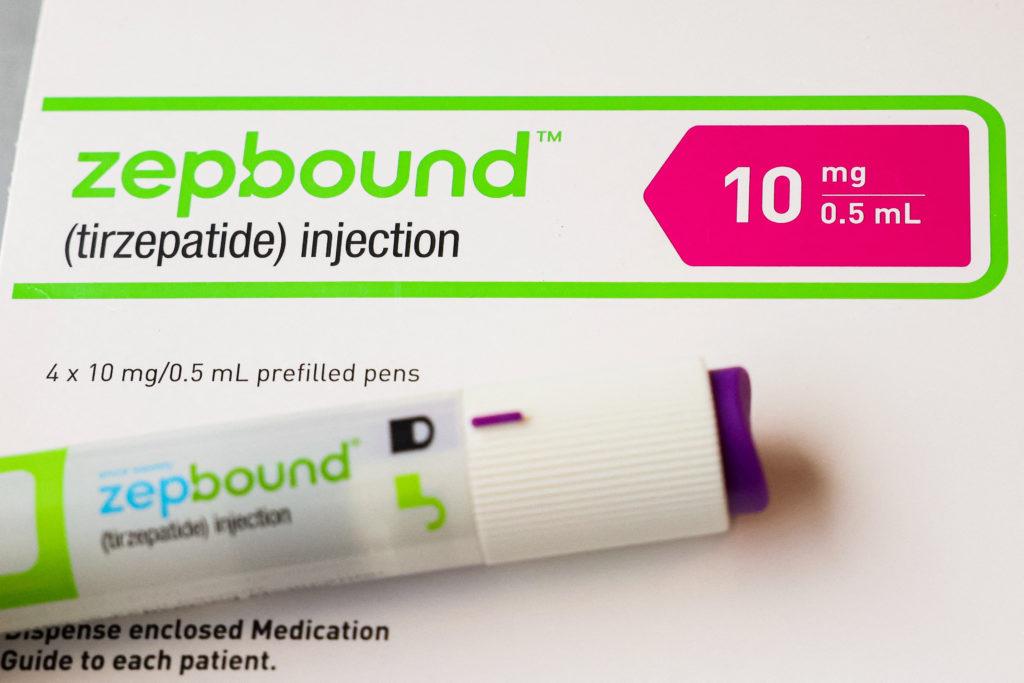Have you ever felt like you’ve tried every weight loss option out there, only to be left feeling frustrated and confused? You’re not alone—many people turn to weight loss medications hoping for a quick fix, yet the reality can often be quite different. In this article, we’ll explore the various drawbacks of these medications, from potential side effects to the impact on your long-term health. We’ll also discuss the challenges that come with relying on them and share practical insights to help you make informed choices about your weight loss journey. So, if you’re curious about what these medications might really mean for you, stick around. There’s plenty to uncover that could change the way you think about weight loss options.

Drawbacks of Weight Loss Medications
While weight loss medications can seem like a quick fix for shedding those stubborn pounds, they come with a laundry list of drawbacks that are often overlooked. Let’s be real: popping a pill might sound enticing, but it seldom addresses the core issues behind weight gain. Ever heard of that infamous “yo-yo dieting”? Many who rely on these medications find themselves stuck in a cycle of losing and regaining weight, all while facing potential withdrawal symptoms once they stop taking the drugs. This can lead to feelings of frustration, as the temporary results mask long-term behavioral changes that are crucial for sustainable weight loss.
Furthermore, the side effects associated with these medications can be quite alarming. Imagine experiencing nausea, insomnia, or even increased heart rate simply because you’re trying to improve your health! According to the National Institutes of Health, many of these medications require regular monitoring by a healthcare provider due to potential risks. And what about the psychological aspect? Many users report feeling a sense of dependency on these drugs, which can lead to a diminished sense of self-efficacy over time. That’s a dangerous path when the real goal should be to empower individuals to adopt healthier lifestyle choices on their own.
So, what can you do instead? Consider incorporating holistic approaches that focus on nutrition, exercise, and mental health. Simple steps like keeping a food diary or trying mindful eating techniques can be incredibly beneficial. Research has shown that making these adjustments not only promotes weight loss but also nurtures a healthier relationship with food. Joining a supportive community, whether it’s a local weight loss group or an online forum, can also provide the encouragement and accountability needed to stay on track. By shifting the focus from medication to sustainable lifestyle changes, you can foster a healthier, more positive relationship with your body and achieve lasting results.

Side Effects to Consider
Diving into the realm of weight loss medications can feel like stepping into a whirlwind of possibilities and uncertainties. While many people envision miraculous transformations, few consider the potential side effects lurking behind the scenes. Ever felt a sudden wave of nausea or an unexpected spike in anxiety? These are common reactions some users report, and they’re not just minor annoyances. They can impact daily life, relationships, and overall well-being. It’s crucial to remember that our bodies are unique; what works wonders for one person might feel like a rollercoaster ride for another.
Have you ever wondered why certain medications come with a laundry list of possible side effects? Take a look at stimulant-based weight loss drugs, for instance. They can potentially lead to increased heart rate and elevated blood pressure, which may not seem significant unless you’re one of many who already struggle with cardiovascular issues. It’s about weighing those risks against the desired benefits. Research indicates that about 20% of users experience significant adverse effects, prompting the question: is the short-term weight loss worth the potential for long-term health complications? Studies have shown a nuanced relationship between medication and metabolic health, suggesting that individual assessments are vital.
So, if you’re considering these options, it’s essential to think critically and make informed choices. Start by consulting with a healthcare professional who can guide you through the intricacies of these medications. Keep a journal to track not just your weight loss but also any changes in mood, energy levels, and physical health. This not only enhances your awareness but also provides valuable insights for your doctor. Weighing your options and listening to your body can often lead to results that are more sustainable than relying solely on medication. Remember, there’s no one-size-fits-all approach to weight loss, and understanding the full landscape of what these medications entail is a significant step towards a healthier you.

Long-Term Efficacy Challenges
When we think about weight loss medications, the first thought that typically crosses our minds is how quickly they can help shed those extra pounds. However, the long-term effectiveness of these medications often raises more questions than it answers. Many people start a medication with high hopes, only to find that those hopes begin to dwindle as time goes on. Have you ever noticed how enthusiasm can fade when results plateau? This is a common experience among individuals who rely solely on these medications for weight management.
Consider this: studies have indicated that while weight loss medications can yield impressive short-term results, most individuals experience significant weight regain once they stop using them. This phenomenon begs the question—what’s the ultimate goal? Sustainable weight loss or quick fixes? For example, a study published in the New England Journal of Medicine followed participants over a two-year period, revealing that about 75% gained back the weight they had lost. This statistic is a wake-up call, reinforcing the importance of integrating lifestyle changes alongside medication as part of a holistic approach to weight management.
Practical steps towards longevity in weight loss can be as simple as establishing a routine that focuses on nutrition, exercise, and mental well-being. Consider incorporating the following into your daily routine:
- Balanced Diet: Aim for whole foods rich in vitamins and minerals.
- Regular Exercise: Combine cardio, strength training, and flexibility exercises.
- Mindfulness Practices: Engage in activities that reduce stress, such as yoga or meditation.
These measures not only support weight maintenance but foster overall health, thereby addressing the root causes of weight gain rather than merely treating the symptoms. Ultimately, by opting for a comprehensive lifestyle approach, individuals can empower themselves to achieve lasting results beyond what medications can offer.

Dependency Risks with Weight Loss Drugs
When delving into the world of weight loss medications, it’s crucial to acknowledge the potential dependency risks that come along for the ride. For some individuals, these drugs can act like a double-edged sword. Yes, they may offer quick results, but what happens when the reliance on these medications begins to overshadow lifestyle changes? Picture this: someone starts taking a weight loss pill, sees a few pounds shed off in record time, and suddenly feels as if they’ve found a magic bullet. The problem? This can lead to a cycle of dependency where the individual convinces themselves they can’t lose weight naturally without the drug’s assistance — a slippery slope, indeed.
Consider the psychological aspect of dependency. Research suggests that individuals who become reliant on weight loss medications may struggle with their relationship with food and their own bodies. It’s not uncommon for someone to begin using these medications as a crutch, inadvertently developing negative thought patterns about food and weight management. It’s a bit like a band-aid on a deeper wound; the external change might be there, but the internal dialogue stays stuck in a loop. To really break free, it’s essential that people explore holistic approaches to weight management, such as nutrition counseling or fitness coaching. Engaging in these activities not only builds healthier habits but also fosters a more positive self-image. A study published in the National Institutes of Health found that guided interventions significantly improved participants’ abilities to maintain weight loss in the long run.
Moreover, let’s not forget the physical implications that can arise from long-term weight loss drug use. Drugs like phentermine or orlistat can bring about side effects that many might dismiss initially. A quick survey among users often reveals stories of jitteriness, fatigue, or even gastrointestinal issues that linger long after the weight is gone. This raises an important question: at what point does the drug’s impact on our health outweigh the benefits we’ve experienced? Before opting for any weight loss medication, individuals should thoroughly consult healthcare professionals and weigh all possible alternatives. Empowering oneself with knowledge is half the battle. The goal is to achieve sustainable weight loss while prioritizing overall health — which, is what we truly want for ourselves.

Cost vs. Benefits of Medication Use
When considering weight loss medications, it’s crucial to weigh the costs alongside the benefits. On one side, prescription medications can offer a shortcut to weight loss, transforming not just how we look, but how we feel about ourselves. Yet, these advances often come with a price tag that extends beyond mere dollars and cents. Monthly prescriptions can run high, especially when considering the long-term use many people require. A recent study revealed that the average annual cost of weight loss medications can reach upwards of $1,200. Are the potential health benefits worth that investment, or could those resources be better allocated towards healthier lifestyle changes?
But let’s not overlook the side effects that accompany many of these medications. Users often report experiencing anything from mild gastrointestinal disturbances to intense fatigue, alongside concerns about dependency. Take for instance, orlistat, a popular weight-loss drug that can lead to unpleasant digestive issues. It’s a bit like trading one set of challenges for another; you may find yourself navigating the tricky waters of medication management while still grappling with the fundamental lifestyle changes you wanted to achieve. So, one must ask: are these drugs truly a panacea, or do they complicate a journey that requires commitment and dedication?
To make an informed decision, it’s essential to have realistic expectations and consider a holistic approach. Consultation with healthcare providers is a prudent first step. They can offer personalized advice on whether medication is warranted for your unique situation—something a generic advertisement can’t provide. Moreover, exploring complementary practices, such as nutrition counseling or exercise regimes, can significantly enhance your journey. You might find that focusing on small, sustainable changes yields the most gratifying results. Remember, education is power; dive into reputable studies and articles, such as those found on NCBI that provide in-depth analysis on medication and lifestyle intervention outcomes. Ultimately, a thoughtful evaluation of both sides will empower you to make choices that align best with your health goals.
In Retrospect
As we’ve explored, while weight loss medications can offer a pathway to shed pounds, it’s essential to weigh the potential drawbacks carefully. From side effects to the reality of dependence, understanding these challenges can empower you to make informed decisions about your health journey. Remember, lasting change often comes from a holistic approach that combines healthy eating, regular activity, and support from loved ones. So, whether you’re considering medication or exploring other avenues, take a moment to reflect on what has worked for you in the past and what you feel ready to try next. Share your thoughts or experiences in the comments—we’re all on this journey together! Ultimately, embracing your unique path towards wellness, with all its ups and downs, is what truly matters. Keep pushing forward, and know that every small step counts on the road to a healthier you.





